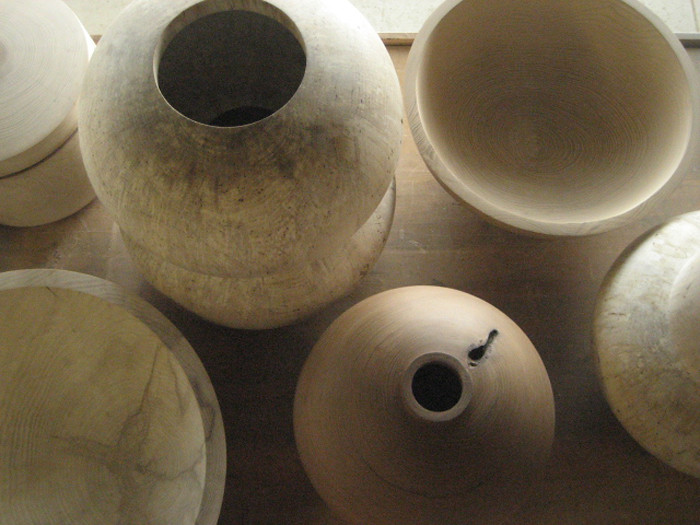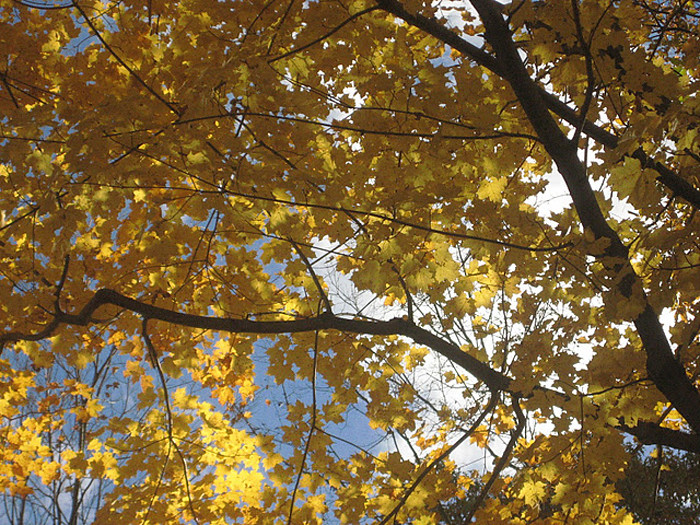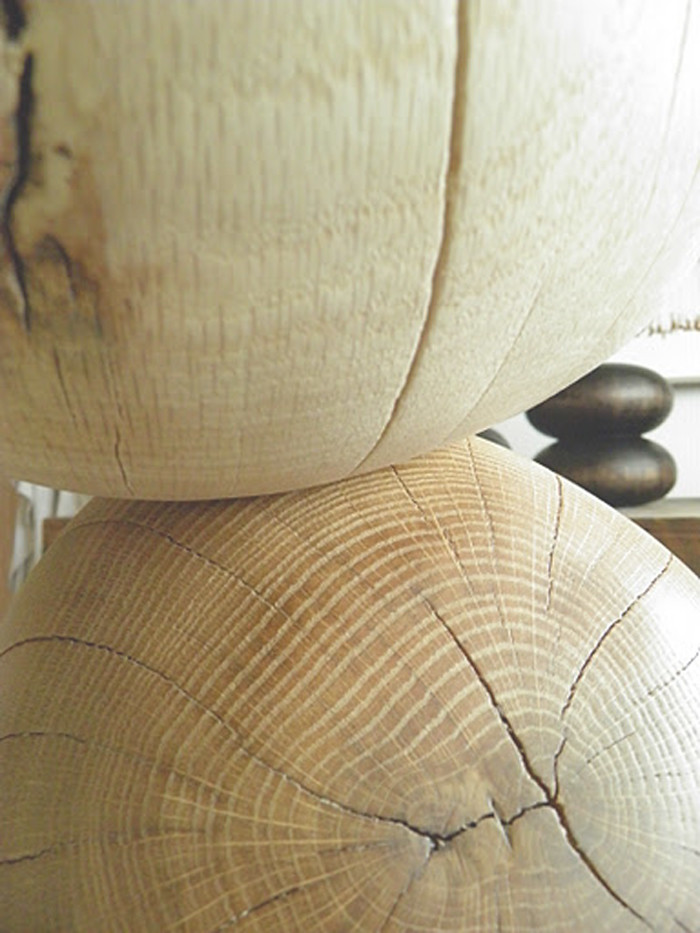"I believe in the beauty of basics & I believe in an essential spirit that transcends both context & material. Right now, I hope that the objects I make help people connect themselves with the spirit in which they were made."
- Josh Vogel of Blackcreek Mercantile & Trading Co.


"Art and design are a language like any other. I am not seeking to make a statement, rather participate in the conversation." "the more "technical" that our lives become the more resonance words like "craft" or "hand made'' have - simply as a reaction ..."
"We need hand made things to have a more poetic connection with life, we want to connect to something important through them (a feeling)."
-----------
the conversation with Josh:
You are an artist and craftsman. Can you talk about the objects you currently make, from the unique editions to the cutting boards, to the belt, etc. Is there a separation in your mind between your sculptures and the cutting boards?
Josh: The theme here seems to be connection. To me it all comes down to connecting with people…some objects or products are more easily accessible than others. Some of the projects that I get involved with such as the sculptural work or the larger scale turnings can take months to complete, the smaller more product oriented work can breakdown to a matter of hours. Either way, I basically have an inability to give anything less than 110% when I go to work.
I have the same focus & intensity making a spoon as I do a complicated sculpture…the sculpture reflects that focus over a much longer period of time, hopefully with different results.
Design for me has always been a very interactive process. The practical aspect of “work” and being “hands on” are an enormous part of how I do things. As a designer, making the designs helps inform my decisions, and as a maker, I constantly learn & gain experience through application & exercise of my designs.
Do you think we idealize the past?
It is just as easy to idealize the future, as it is the past.
I believe that objects are reflections of our culture, and can be read as the signs of the times. The 80's were so decadent. What do your objects say about the culture we live in?
Josh: I find it very difficult to speculate…I agree that who we are & what we do are reflections of something much larger…I also agree that, in retrospect, the 80’s seem extravagant. But that’s just it, for me, it comes down to context – a lens through which we view things. Feasting seems quite decadent in times of famine. In this respect, it’s difficult to guess what the objects are saying. I hope that they reflect my desire to connect & understand in a more fundamental way.
I believe in the beauty of basics & I believe in an essential spirit that transcends both context & material. Right now, I hope that the objects I make help people connect themselves with the spirit in which they were made.
Why do you feel people are seeking "authenticity" in design? The old fashioned filament bulb has risen to popularity in the last few years. I think this a perfect example of this. We want to be in spaces that feel real, that reflect the past, a simpler time, a more pure time, if you will.....
Yes, I think it is true…we want to be in spaces that feel real, but fundamentally it is about our desire for connection. Whether it is about maintaining & deepening a connection or finding new ones, in times of change these parts of our lives get challenged. I think culturally, icons like the light bulb are created to help define that change. In retrospect, the bulb may be from a simpler time, but it also represents the technological beginning of an entire electrical revolution. There is a connection here with something deeper…
I think the word relevance gets thrown around when we talk about this “real” connection. I am a big believer in that all things genuine, authentic, & personal are relevant.


Is your work about looking towards the past, or about the present?
There is a very big aspect of the work that I do that is rooted in a long line of craft tradition. One of my favorite quotes to paraphrase is Isaac Newton’s one about "standing on the shoulders of giants…And if I have seen further it’s because…”.
Checking in with this idea is very much a part of my daily life. But, I gather as much inspiration and motivation from my daily life, my immediate environment, & the people around me as I do from looking backwards or forwards. The instance of my own connection happens only by being absolutely present & engaged. It unfolds & reveals itself moment to moment…there is no great mystery here, it’s just the nature of work & being creative.
How did you first find craft/wood? Did you come from a family of makers?
Cattle ranchers, contractors, artists & teachers. More than being taught to make things growing up, I was taught to be respectful, resilient, inquisitive, & independent. My family has always had a very strong sense of duty, coupled with a wicked work ethic. Somehow I inherited a line to tow in all of that, a kind of “John Henry vs. the steam drill” challenge that makes more sense to me than perhaps it should.
Do you remember making things as a kid?
I drew a lot as a kid & overalls with pencil pockets were part of my uniform. I still fill up sketchbooks. Hammers & nails, scrap wood…but everything changed when I was old enough to have my first pocketknife.


What has wood taught you?
I am going to have to spend a lifetime trying to figure it out! Working with wood has become a large part of my life, I think that on one level or another I could relate every other thing to it. It has become a catalyst of sorts…maybe that is just it…through my work with wood I have come to understand a great many other things. The power of water, the genetic potential of an acorn, photosynthesis, charcoal, metallurgy, forestry etc., etc., it’s all there. I am not saying it’s only there, I am saying it’s a matter of getting into it…exercising your desire to learn, seeking out connections.
Would you consider yourself a purist of sort?
I am not a purist & if that is the impression, you simply find me at a moment of being very focused. I consider myself to be very flexible. I love conceptual thinking, challenging accepted ideas, and exploring different mediums.
Any craftsmen to recommend?
These guys, local & international, are both craftsmen & masters in their respective fields & are both hugely influential to me. Peter Zumthor & Martin Puryear.
Can you explain how a wood lathe works? Does it require a large amount of force? Do you see that force when you look at objects that have be worked on a lathe, or does that force disappear?
I think most people are a little let down the first time they see a lathe – until you switch it on & it starts to turn a rough piece of lumber. It’s a very basic machine. The concept is simple, the log spins very quickly on a fixed axis…then, chisels are levered into the spinning log removing shavings of the wood. Somewhere in there is a circular, curvilinear shape, open or hollow, round or flat, bowl or box. There is certainly magic in the making.
Turning takes great force to accomplish as with many other kinds of material transformation. If I manage it well, in my work, that very force is finally recognized in balance of form & clean shape. You mention the sound of the lathe, and you can hear it in the Scout video. It sounds incredibly peaceful....
When I blew glass for 5 years, I felt at times I was in a glorious state of otherness. Can you relate to this feeling?
Wood turning demands attention and tends to remind you if you become too distracted. I am sure not all that dissimilar to molten glass. I think that otherness that you are describing is the moment of empathy. It’s not necessarily about you or the material; it’s the moment where both meet.
There’s an unconscious give & take, an intuition, a push & a pull, resistance & give…carving an edge, choosing a path & staying with it as long as possible. There is no machine, there is no tool, your neck is not sore, your arms are not tired, it’s just happening.
Yes I can relate to that feeling.
New projects?
You know it’s funny that you brought up glass blowing. One of the most interesting new projects of ours has been making wooden tools for a glass blowing neighbor of ours. The studio uses a specific type of wood for their blocks, forming sticks & molds. Most of these tools live in water & are used in connection with the molten glass, which you might be familiar with. It got me thinking harder about a discussion we have been having about wood tools…& more particularly, specialized uses for wood.

Where can we find your works?
Joshua Vogel Turnings: Blackcreek Mercantile & Trading Co.,Karkula, MATTER, Standard Goods (Los Angeles)
Joshua Vogel Ltd. Edition Sculptural Wood Kitchen Tools:
Blackcreek Mercantile & Trading Co. & MARCH (exclusively)
Blackcreek Mercantile & Trading Co. small products: go here...
(a big thank you to Josh and Kelly for the photography, words, kindness, and work.)
--------------
